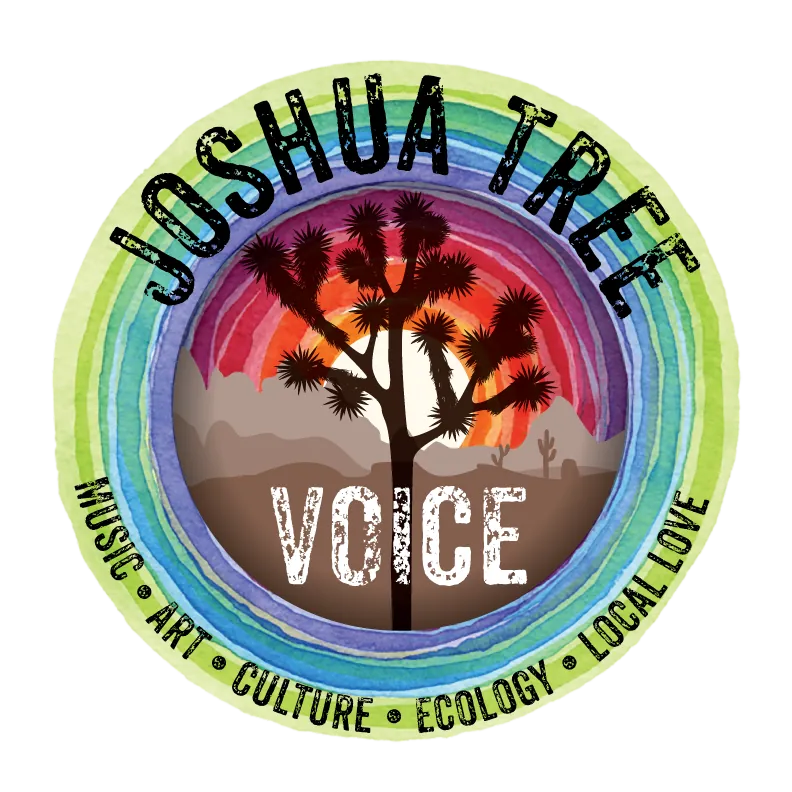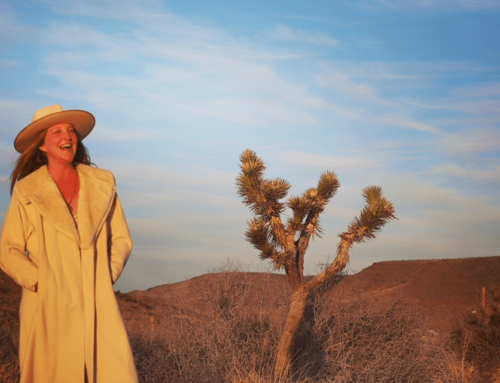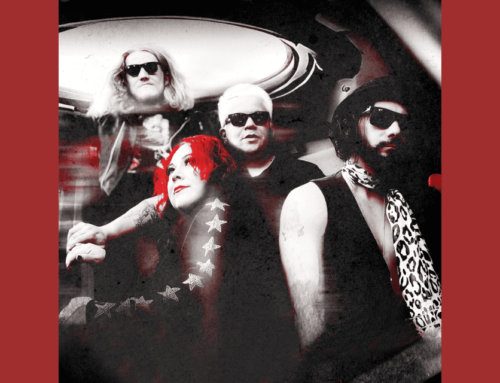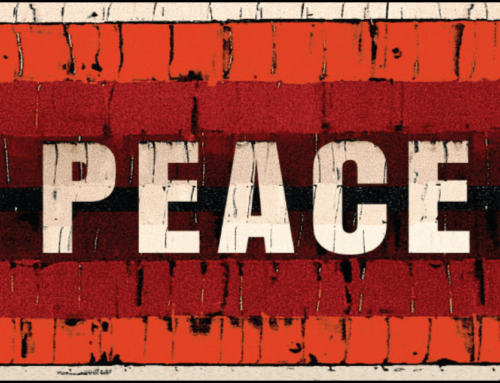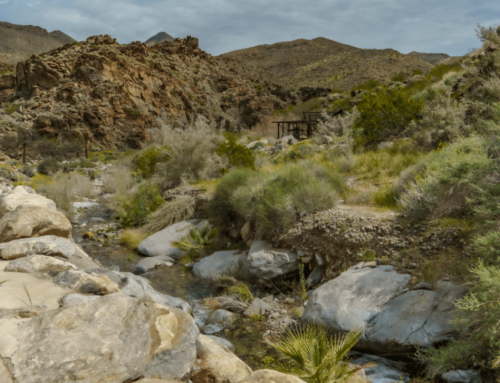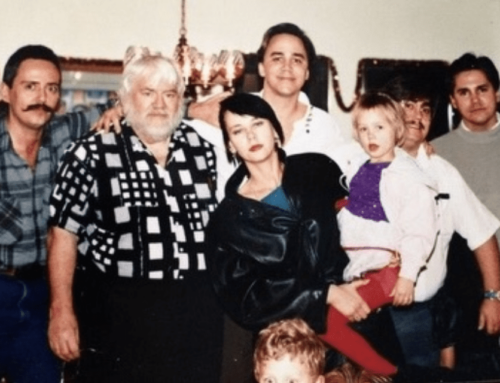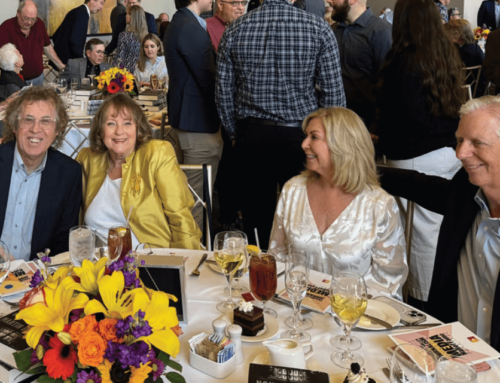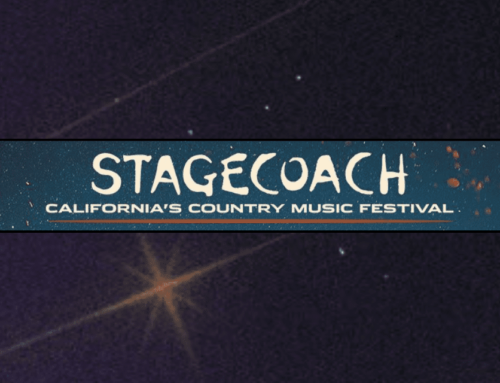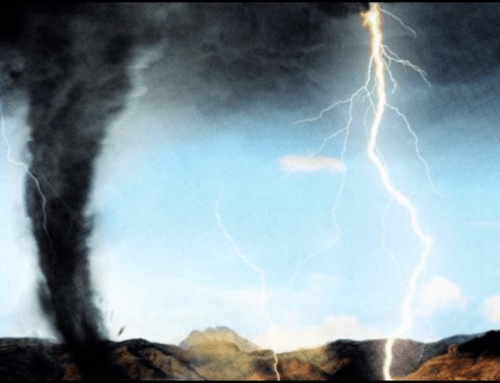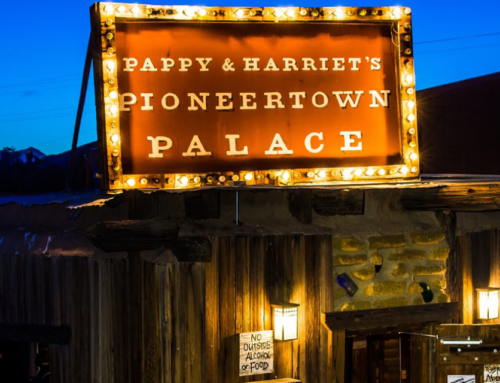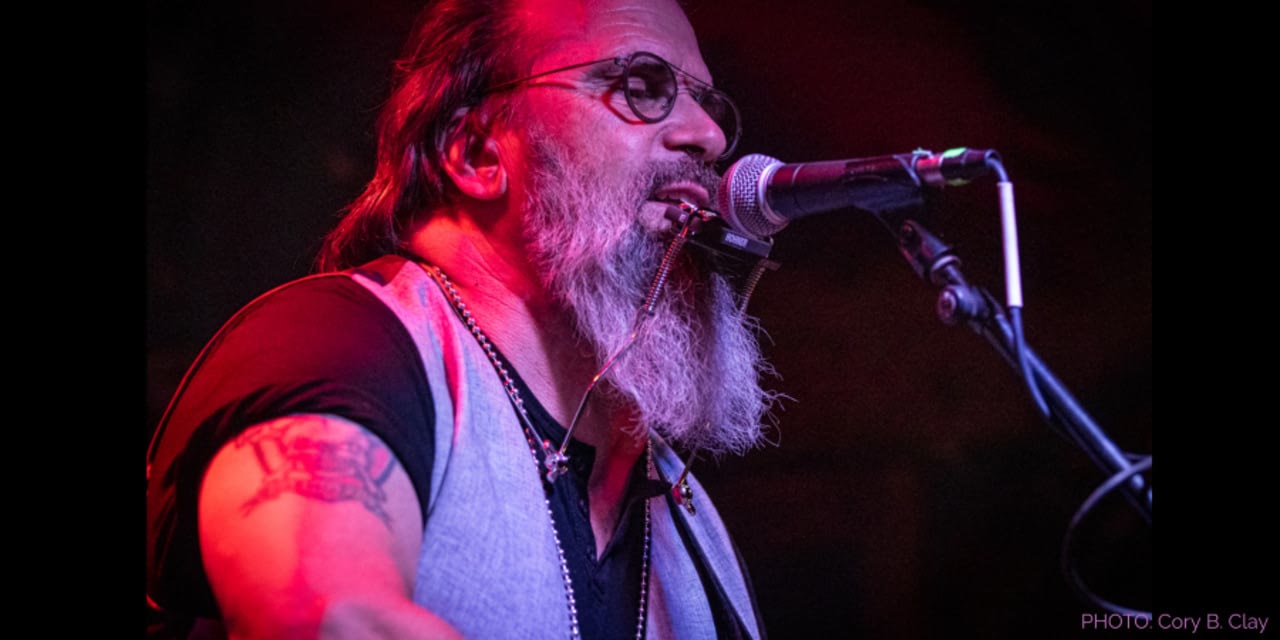
One on One with the Legendary Steve Earle
By Lisa Lynn Morgan
roubadour,” “Renaissance Man,” “Outlaw,” “Addict,” “Inmate,” … Steve Earle has earned all these titles and then some. Decades of fearless, rigorous, and unfaltering pursuit of the truth and his inherent ability to embody it through song, always poignantly, and often controversially, have earned him multiple Grammy nods and wins, as well as a fan base that is selling out venues for his “Alone Again” tour.
On July 31, 2023, the author of “Copperhead Road’ (now the official state song of Tennessee), “Galway Girl,” “Guitar Town,” and more, walked through the rear side door of the legendary adobe building known as Pappy and Harriet’s Pioneertown Palace and onto the same stage that Sir Paul McCartney graced in 2016. Ironically, it was a Beatles album that inspired a younger 14-year-old Steve Earle to become a songwriter in the first place. Without introduction or fanfare, Earle strapped on his custom-built Martin acoustic guitar, quickly checked the harmonica on its rack around his neck and came face to face with a flood of cheers and praise from a loyal bunch, packed into the front of the small, 300-person maximum capacity venue like sardines. The crowd seemed to fathom the gravity of seeing and hearing this tenured troubadour. Earle and his guitar did not disappoint as he delivered decades of songs without a set list.
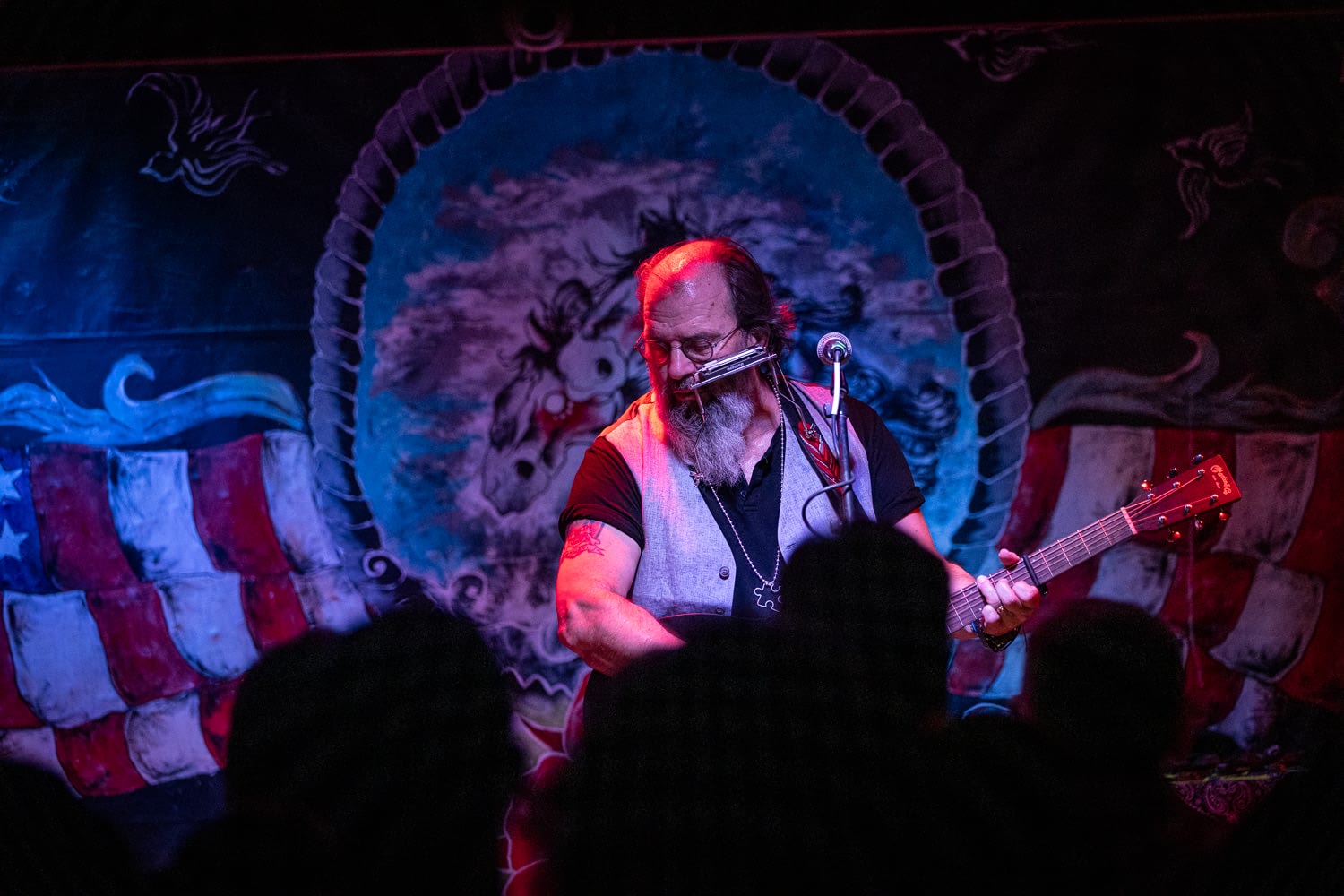
Steve Earle performing at Pappy + Harriet’s Pioneertown Palace. Photo by Cory B. Clay
Surprisingly the prolific songwriter didn’t open with one of his own, but instead, with Shane MacGowan’s (The Pogues) “If I Should Fall from Grace With God”:
If I should fall from grace with god
Where no doctor can relieve me
If I’m buried ‘neath the sod
But the angels won’t receive me
Let me go boys
Let me go boys
Let me go down in the mud
Where the rivers all run dry
This land was always ours
Was the proud land of our fathers
It belongs to us and them
Not to any of the others
Let them go boys
Let them go boys
Let them go down in the mud
Where the rivers all run dry
Bury me at sea
Where no murdered ghost can haunt me
If I rock upon the waves
No corpse can lie upon me
It’s coming up three boys
Keeps coming up three boys
Let them go down in the mud
Where the rivers all run dry
If I should fall from grace with god
Where no doctor can relieve me
If I’m buried ‘neath the sod
And still the angels won’t receive me
Let me go boys
Let me go boys
Let me go down in the mud
Where the rivers all run dry
As the song began to pour out of him, he made a few quick asks from sound tech, Jon Ballard, located off stage, to his left. Then Earle’s eyes fixed on a boy, likely in his pre-teens, sitting in a single row of seats stage left. The young man contentedly sat with a woman next to him. As the show went on, Earle would often face the boy seemingly playing a few measures directly to him as if he was the only one in the room. Since 2010, Earle’s daily focus extends beyond his music career as he looks out for the best interests of his own son, John Henry Earle, diagnosed with Autism, largely non-verbal.

Steve Earle performing at Pappy + Harriet’s Pioneertown Palace. Photo by Cory B. Clay
The top of the show was packed with some of Earle’s most familiar hits, like “Devil’s Right Hand,” “Transcendental Blues,” and “Guitar Town.” Hearing them played without the production of a full band seemed to sharpen the edge of lyrics, transforming the old adobe building from a bustling, loud, rock and roll venue into a listening room. Here, at this show, the songs were the stars, and Earle merely the vessel delivering them. There are few who can captivate a crowd without the help of other performers, stage props, or vocal acrobatics. The unapologetic folkie held the crowd in this standing only room, warm and uncomfortable from the number of bodies piled into it, in the palm of his hand. He studied us, and we studied him, digesting every single note and word. When an encore was demanded, he gave us, “Billy Austin,” the 1990 song he wrote in first person about a young man facing capital punishment – the room was breathless.
Joshua Tree resident and music icon, Victoria Williams, a friend of Earle’s since their early days of touring together, was in the audience. The encore brought tears to her eyes. “I would have to say that his encore with ‘Billy Austin’ was my favorite. But ‘Devil’s Right Hand’ is always one I love, as I believe every gun and bomb on the planet should be melted down and turned into plow tools for gardening. I love Steve very much, and I love him solo!”

Photo Courtesy of Steve Earle
Joshua Tree Voice had the honor of speaking with Steve Earle prior to the performance. If you’ve ever tuned in to “The Steve Earle Show: Hardcore Troubadour Radio,” you already know that any answer to any question blooms into a front row seat to decades of music history that he has personally lived and written. His bones are steeped in the music and life experiences shared and learned from the giants and legends on which the broad circumferential Americana genre has been built. Earle is featured in the highly acclaimed Heartworn Highways, a documentary examining the outstanding singers and songwriters of the “outlaw country” movement. In it, a very young Earle sits at a table at Guy Clark’s house, guitar in hand surrounded by many of them.
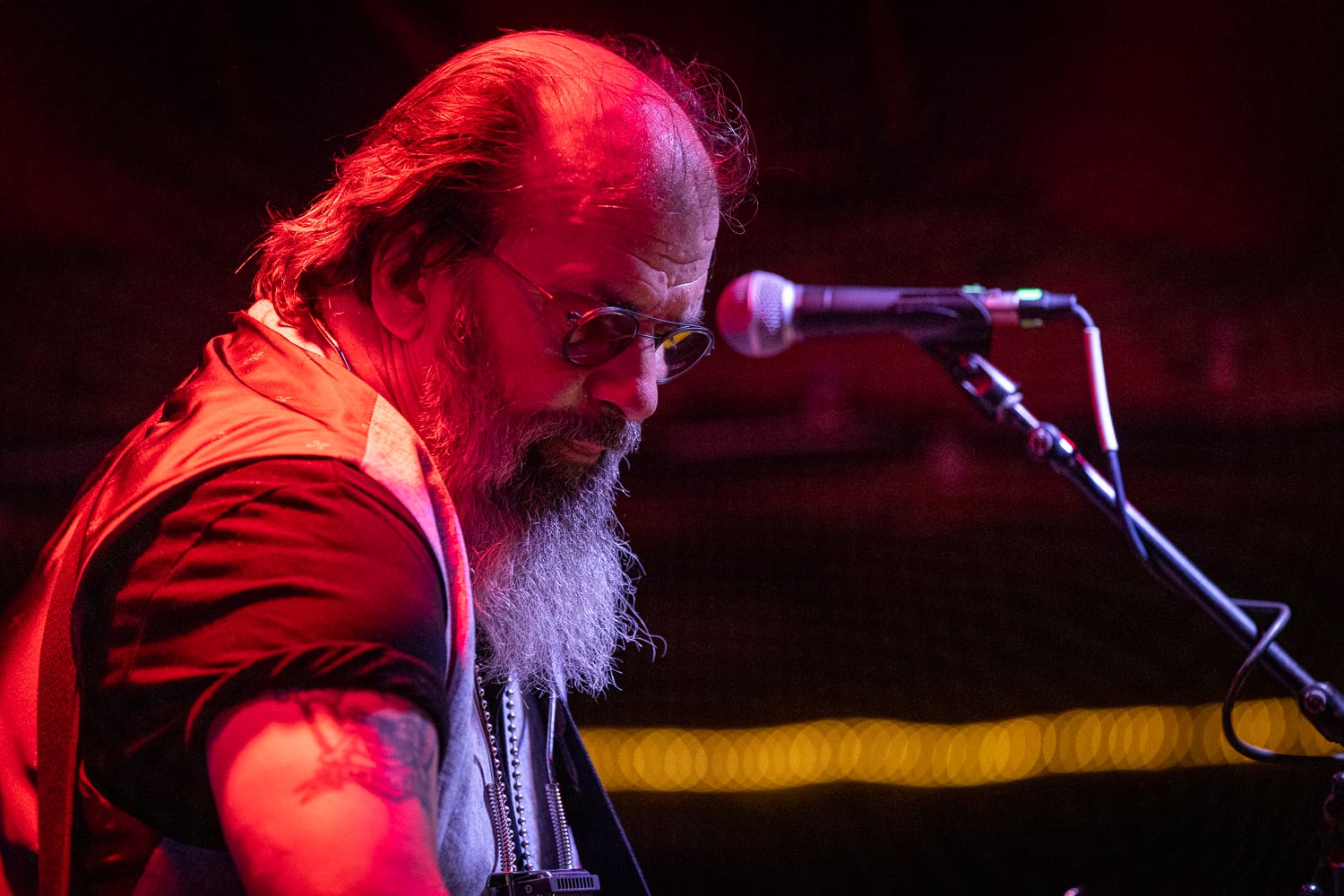
Steve Earle performing at Pappy + Harriet’s Pioneertown Palace. Photo by Cory B. Clay
In October 2022, The Mastersons who toured as Steve Earle’s backing band, “The Dukes,” announced their departure after 12 years and 7 albums, crediting Earle for being their biggest advocate, strongly encouraging them to make their first album. When asked how touring solo felt compared to touring with the band, Earle stated that playing solo is part of who he’s always been. “I didn’t have a band until my late 20s, and that was a three-piece rockabilly band in the early 80’s (that later morphed into Steve Earle and the Dukes). I’m a folkie. I come from coffee houses just like Gram (Parsons), Townes (Van Zandt), Guy (Clark), and Chris (Hillman). We’re all post-Bob Dylan coffee house bred songwriters. South Texas was a great place to grow up musically, but then things really busted open when I moved to Nashville. I was still only 19 and got to see bluegrass music up close for the first time – and old-time music, music that was more from the Appalachian Mountains versus western swing – one of the main components of rock and roll in the first place. There hasn’t been a “Dukes” really, when it gets right down to it, spiritually, since Kelley Looney died, our bass player for 30 some odd years beginning with ‘Copperhead Road.’”
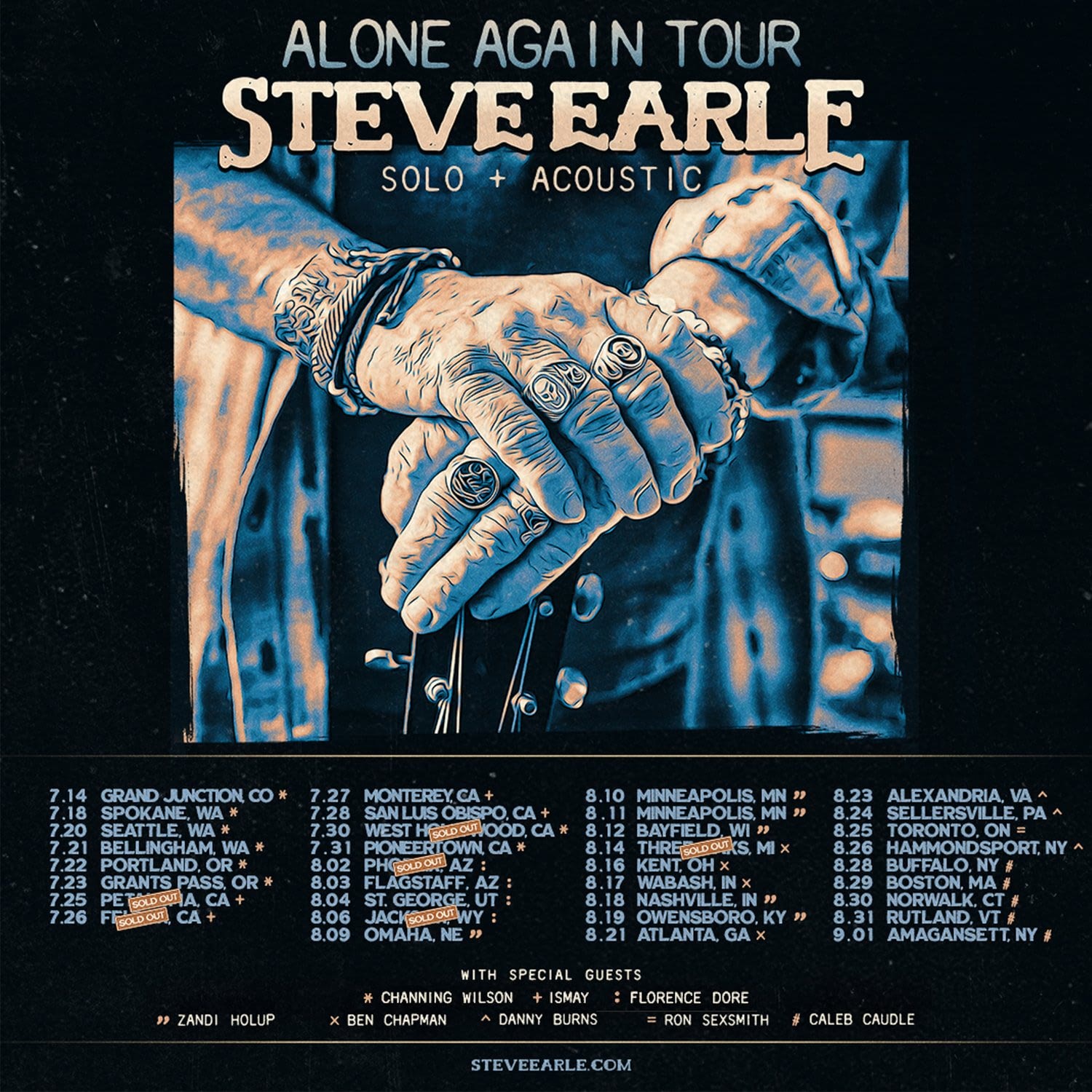
This was Earles first time in his tenured career playing in the Joshua Tree area, but like Gram Parsons, Earle had spent time in the Joshua Tree area in his younger years. Earle was much younger than Gram Parsons, but the musical influence was in his bones. He remembers where he first saw Parsons and where he was when he heard the news on the radio that Parsons had died.
“I left home at 16. I had a ‘Gram Parsons and the Fallen Angels’ bootleg from a show at Liberty Hall. As it turns out, I had seen Gram play, but I didn’t know who he was since he was with the Byrds.”
“I was in San Antonio in ‘73 working a day job for a swimming pool company,” Earle recalled. “We were called the ‘Strange Crew’ ‘cause we were all musicians with long hair. We were basically the last guys working on the pool before they sprayed it with concrete, and then did all the rough landscaping after it was all finished. It was really hard work and hot in San Antonio. The day Gram died, we heard it on the radio, and we stopped in our tracks. We all went and got drunk and nearly got fired.”
Following a peaking career in the late ‘80s with the success of Guitar Town and “Copperhead Road,” Earle spiraled, losing much of everything including his freedom. Earle was arrested in 1993 for possession of heroin and in 1994 for cocaine and weapons possession. He served 60 days of a one-year sentence, and he’s been clean and sober since. However, his eldest son, Justin Townes Earle, only found freedom from addiction after an accidental, fatal overdose from cocaine laced with fentanyl.
Joshua Tree Voice asked Earle how he maintains his sobriety, and he answered in his signature straight forward way, with a chuckle, “I just don’t pick up. I go to meetings, I call my sponsor, and I sponsor people. It was not hard for me to stay clean once I got clean, and trust me – when I drank, I drank like an alcoholic. But I really didn’t drink much during the tail end of my story because I considered it (alcohol) to be an inefficient drug. It (sobriety) was not hard the first 10 or 12 years, like it has been the last decade when my first sober and longest marriage ended just as my son was diagnosed with autism… then I lost my first born to an overdose of fentanyl. I’ve really needed it (his sobriety program) for the last 13 or 14 years more than I ever have. I talked to my sponsor a lot… but it was my sponsees that saved my ass when it comes right down to it.”
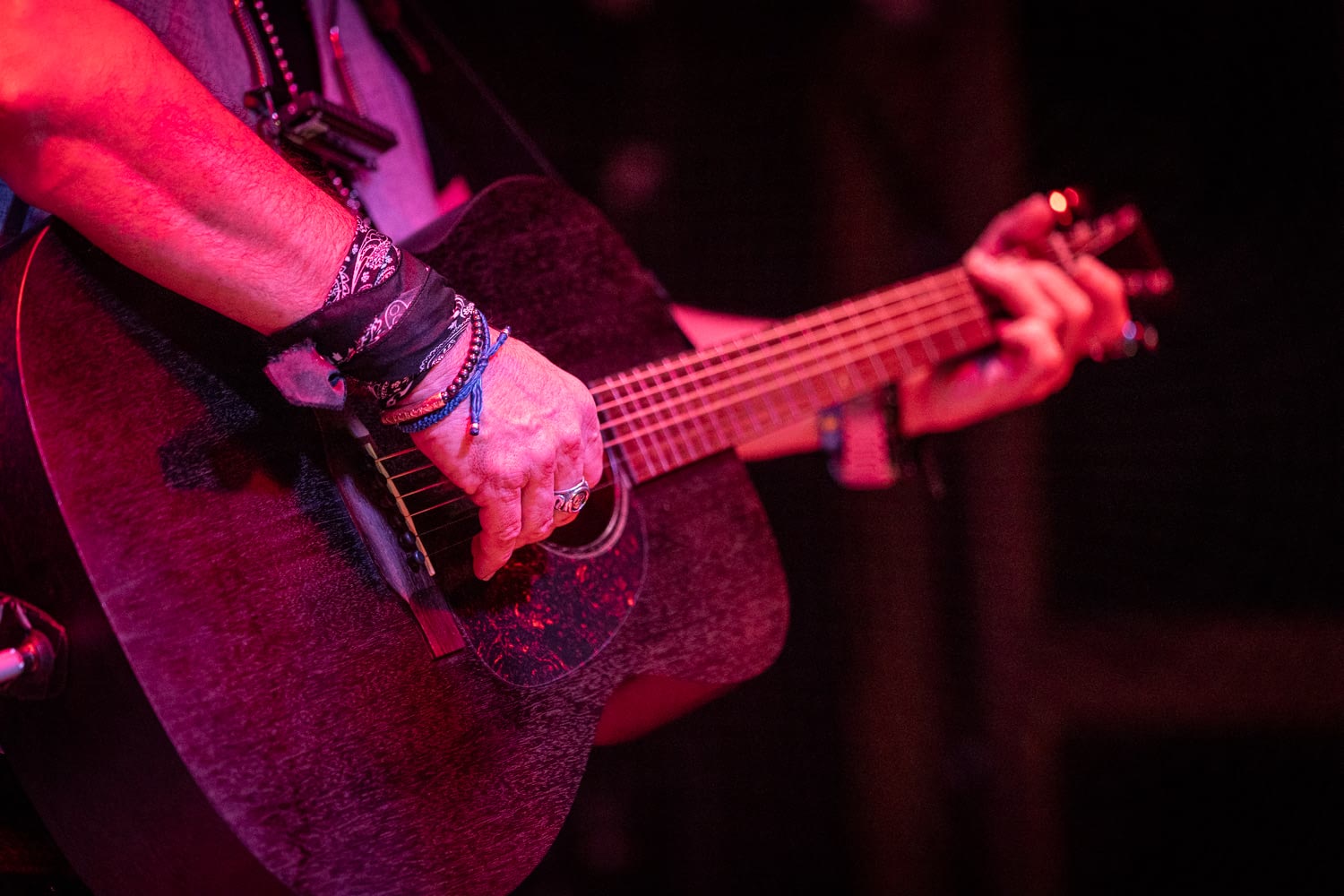
Steve Earle performing at Pappy + Harriet’s Pioneertown Palace. Photo by Cory B. Clay
Steve Earle is one of the most acclaimed singer-songwriters of his generation. A master storyteller, his songs have been recorded by Johnny Cash, Waylon Jennings, Joan Baez, Emmylou Harris, The Pretenders, and countless others. His record, Guitar Town, which shot to number one on the country charts is now regarded as a classic of the Americana genre. Releases of, The Revolution Starts…Now (2004), Washington Square Serenade (2007), and TOWNES (2009) received consecutive GRAMMY® Awards. His most recent album, Jerry Jeff (2022) consisted of Earle’s versions of songs written by his mentor, Jerry Jeff Walker. In 2020, Earle was inducted into the Nashville Songwriters Hall of Fame, and in 2023, Earle was honored by the Bruce Springsteen Archives & Center for American Music. Yet, while greatly deserving and clearly qualified, his name is notably absent and yet to be recognized by other major American glory halls where the best of our music contributors have been memorialized.
Earle has published both a novel, I’ll Never Get Out Of This World Alive (Houghton Mifflin Harcourt 2011) and Dog House Roses, a collection of short stories (Houghton Mifflin 2003).
Earle produced albums for other artists such as Joan Baez (Day After Tomorrow) and Lucinda Williams’ Car Wheels On A Gravel Road.
As an actor, Earle has appeared in several films and had recurring roles in the HBO series The Wire and Tremé. In 2009, Earle appeared in the off-Broadway play, Samara, for which he also wrote a score that the New York Times described as “exquisitely subliminal.” Earle also wrote music for and appeared in Coal Country, for which he was nominated for a Drama Desk Award. Earle is also the host of the weekly show Hard Core Troubadour on Sirius Radio’s Outlaw Country channel where each show is a master class in folk music history.
Currently, Earl is writing a musical based on the movie, Tender Mercies, alongside Daisy Foote whose father, Horton, wrote the screenplay of the film. “That’s the main songwriting project,” Earle answered when asked what was next. “I’ll probably make some other kind of record. You know… the band is gone… that’s over. For the time being, I don’t have any plans to put another one together. That may dictate what the next record is to some degree. In some ways, with any band, even when they’re really versatile, you end up writing for that band, so I kind of wonder what it’ll be like to write without any particular player.”
At this point in his career, Steve Earle can get anybody to play on his album that he wants. Whatever this master song crafter produces, it’s a good bet that it will be another solid and timeless entry in the American Songbook, right next to his mentors.
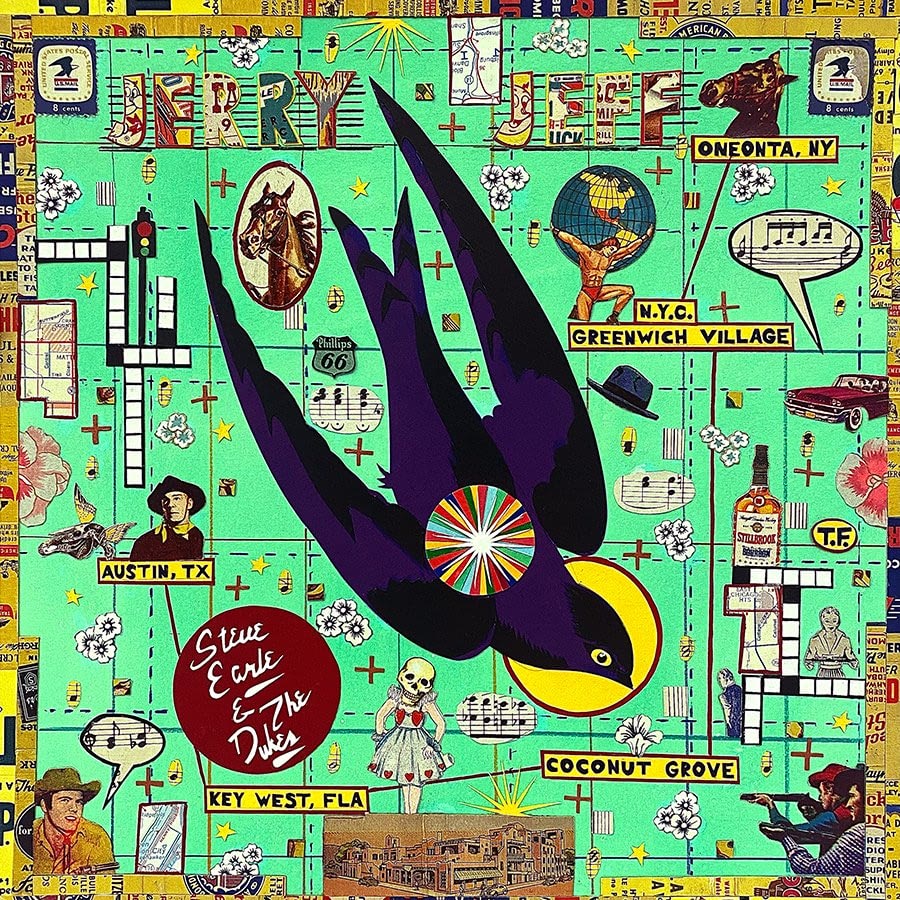
Photo Courtesy of Steve Earle
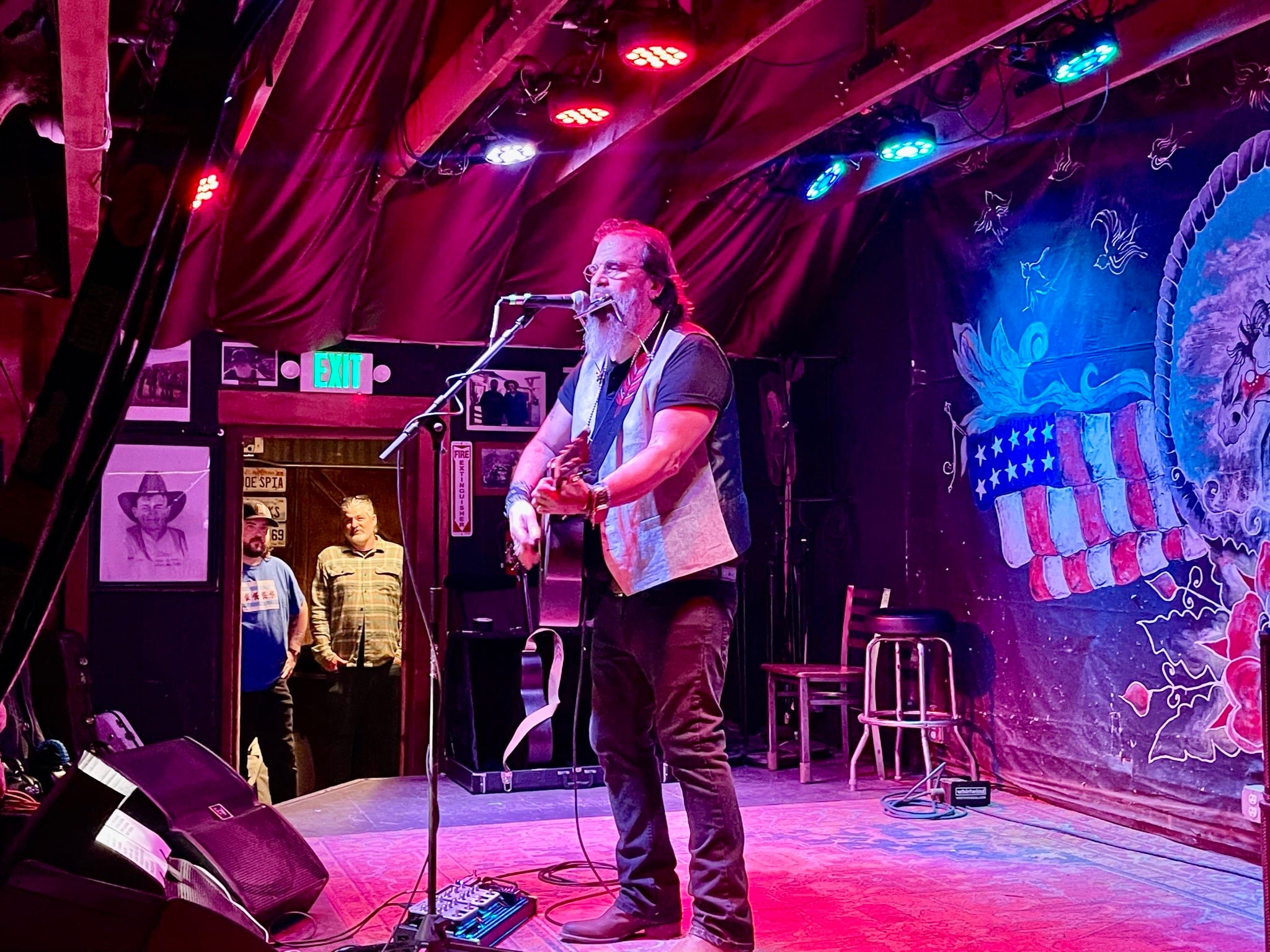
Photo by Lisa Lynn Morgan

Steve Earle Photo by Cory B. Clay
Lisa Lynn Morgan is the Publisher of Joshua Tree Voice. Her writing career has spanned over two decades covering much of the entertainment that has come through and from the Southern California Desert.
